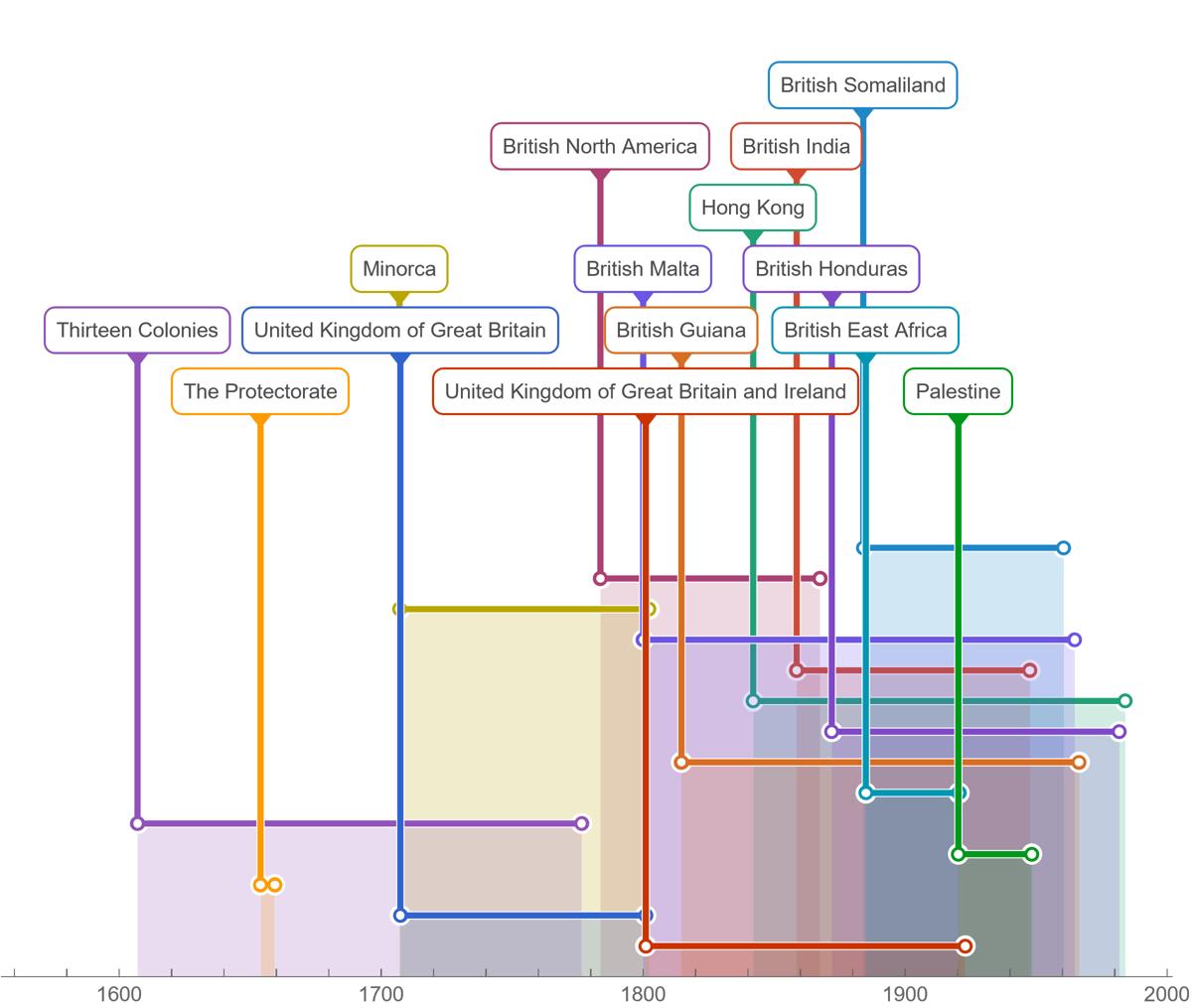Timeline of the British Empire

- United Kingdom of Great Britain and Ireland: Formed in 1801, this union lasted until 1922 when the majority of Ireland gained independence. It represented the consolidation of British power over the Isles.
- The Protectorate: The British Protectorate was a form of indirect rule where Britain controlled foreign affairs while allowing local governments to remain. This was evident in places like Egypt, where Britain maintained control without full annexation.
- Palestine: After World War I, Palestine was placed under British control as a League of Nations mandate. The British administration faced complex political and social challenges, setting the stage for ongoing regional conflicts.
- Thirteen Colonies: These colonies declared independence from Britain in 1776, leading to the American Revolution. The colonies' grievances included taxation without representation, which fueled revolutionary sentiments.
- British East Africa: This region included modern-day Kenya, Uganda, and Tanzania. It was notorious for its wildlife and natural beauty, and British colonization significantly impacted local cultures and economies.
- British Guiana: Now known as Guyana, this territory was rich in natural resources, particularly sugar. It became a significant economic hub for the British Empire in South America.
- British Honduras: Present-day Belize, this colony was known for its timber industry and served as a strategic location for trade in the Caribbean.
- Hong Kong: Acquired after the Opium Wars in the 19th century, Hong Kong became a vital trading post and financial center due to its strategic location and access to Asian markets.
- British India: This was the crown jewel of the British Empire, known for its vast resources, cultural diversity, and the significant impact of British rule on local governance, economy, and society.
- British Malta: This island served as a key naval base for the British in the Mediterranean, playing a crucial role during both World Wars due to its strategic location.
- Minorca: This small Balearic island changed hands between the British and Spanish several times, showcasing the shifting power dynamics in the Mediterranean.
- British North America: This refers to territories that are now part of Canada. The British established control through a series of treaties and military actions with Indigenous populations and rival colonial powers.
- British Somaliland: This was a British protectorate in the Horn of Africa, known for its strategic importance and its role in trade routes linking Africa and the Middle East.
Overall Fun Fact: At its peak, the British Empire was the largest empire in history, covering about 25% of the world's landmass and influencing global politics, trade, and culture significantly.